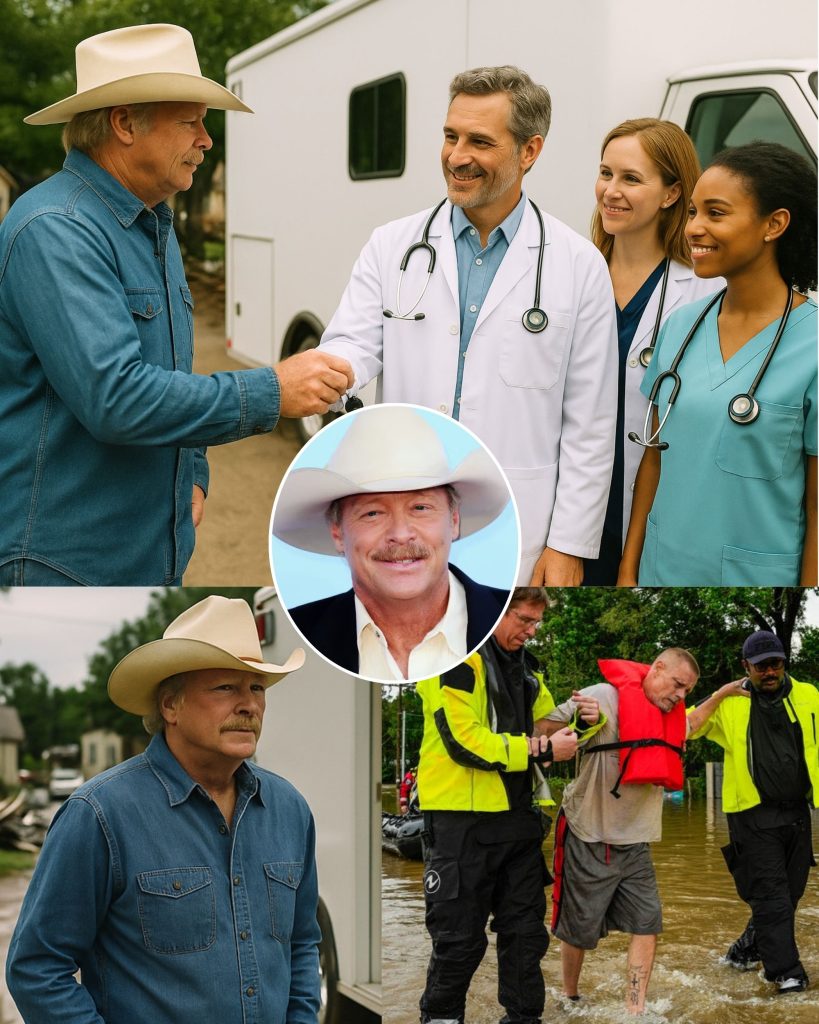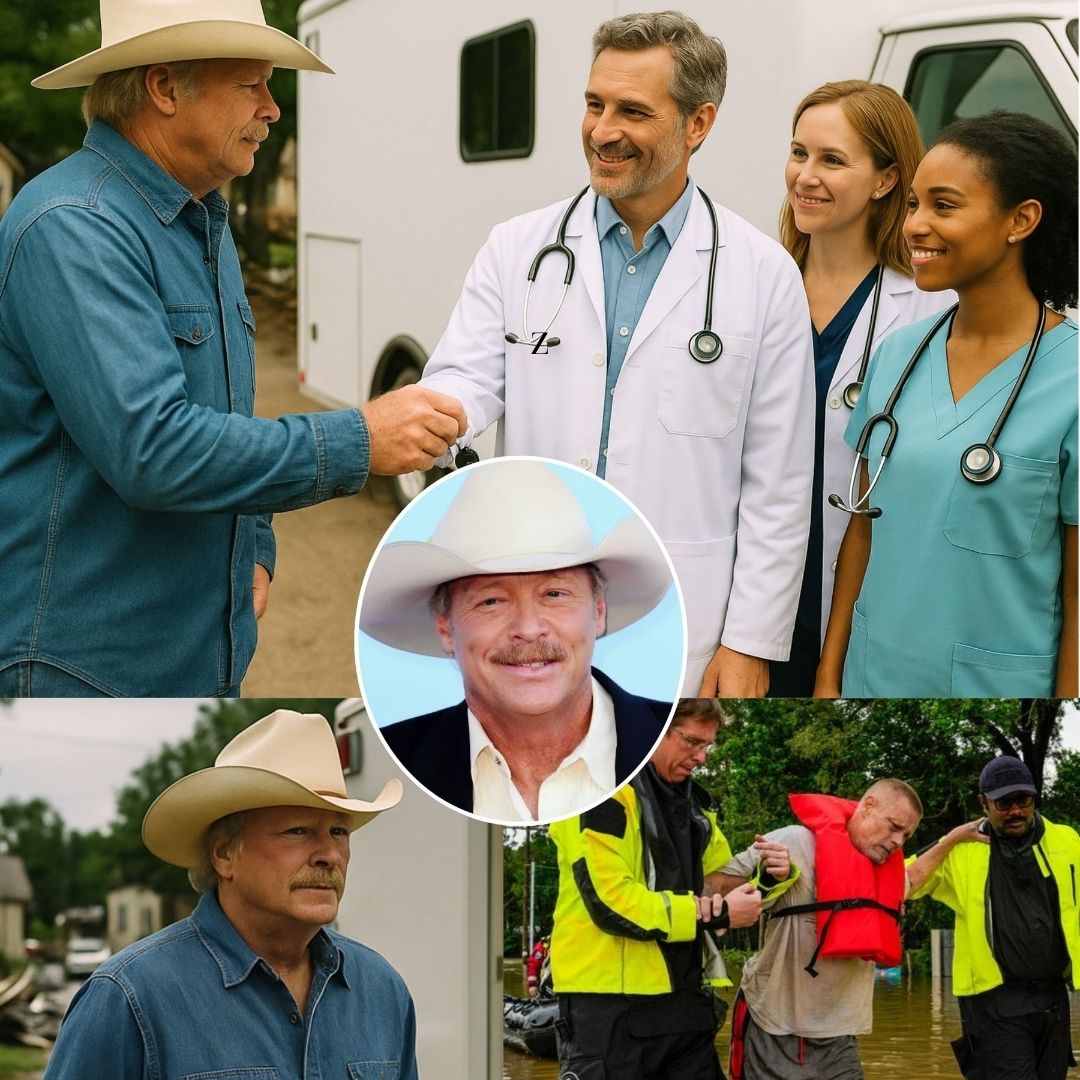
From Food to Healing: A Rare Kind of Help in Crisis
In most natural disaster relief efforts, the focus tends to be on essentials — food, clean water, and temporary shelter. But Alan Jackson — though not a professional humanitarian — saw a quieter, deeper void: the desperate need for medical care and emotional healing in the aftermath.
What he funded wasn’t just a mobile medical unit. It was the “Healing Station” — a deeply human initiative providing:
-
Basic treatment for wounds, infections, and urgent health needs
-
Mental health counseling for flood survivors facing PTSD, anxiety, and insomnia
-
A rotating team of volunteer doctors and therapists, including rural health specialists and trauma counselors
While major organizations often take weeks to respond, Alan Jackson’s Still Standing Fund acted swiftly, precisely, and personally, reaching small-town Texans whose clinics and hospitals had been isolated by the flood.
“I Don’t Need Them to Remember My Name” — Living the Words He Sings
What set this action apart wasn’t just the idea — but how he did it:
-
No press conference. No logos. No mention of Alan Jackson on the side of the truck
-
No public fundraising campaign — he personally funded it all
-
No fanfare — just quiet presence through real, thoughtful action
He once said:
“I don’t need them to remember me. I just want them to remember… someone came.”
That wasn’t just a quote. It’s a philosophy he’s lived — in life, and in music — for over 30 years.
From Music to Deeds — With the Same Heartfelt Simplicity
People have long loved Alan Jackson for songs like “Remember When,” “Drive,” and “Where Were You (When the World Stopped Turning)” — ballads about family, memory, faith, and quiet resilience.
Now, he’s taking that same spirit off the stage and into real life — not just singing stories, but becoming one.
In a world filled with noisy PR and branded charity, Alan chose invisibility — but never irrelevance.
Final Note: One Artist, One Heart, One Truth
The “Healing Station” doesn’t just treat wounds. It restores dignity. It tells flood victims they are seen, heard, and held — not with headlines, but with honesty.
And it leaves behind a quiet but powerful message:
In a crisis, what people need most isn’t a famous name — but a presence. At the right time. In the right way. With the right heart.
